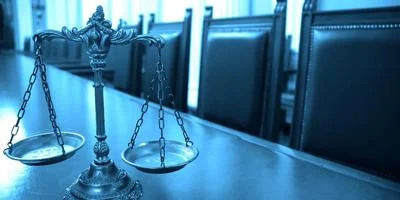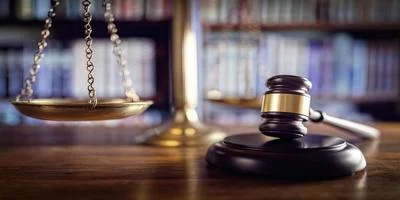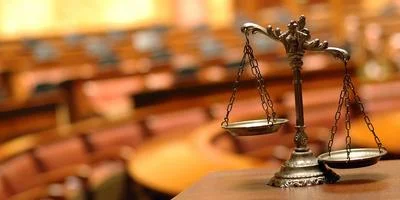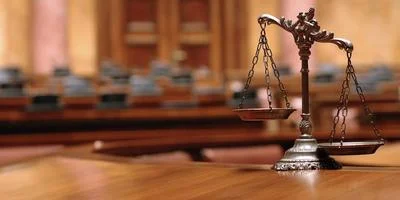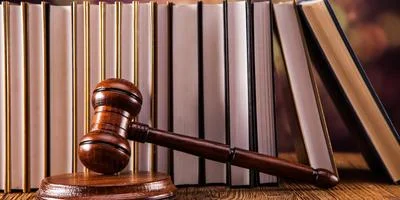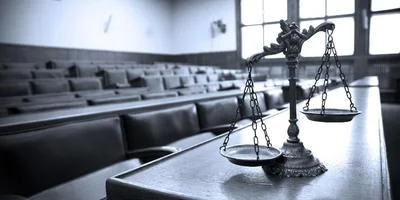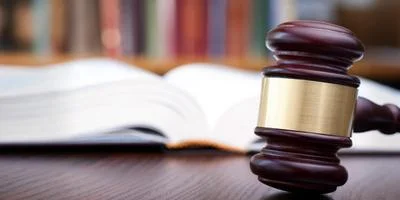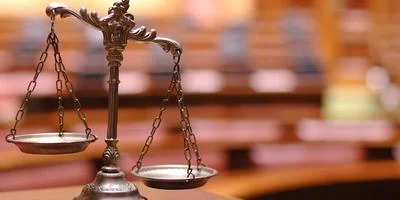U.S. Supreme Court
Recent News About U.S. Supreme Court
-
Illinois can choose SEIU to represent all home caregivers in negotiations: Appeals court
The state of Illinois doesn’t trample on the rights of non-union home care providers by forcing them to abide by the terms of deals it strikes with a union over care provider pay rates and other terms of the care providers’ “employment,” a federal appeals court has ruled. -
SCOTUS OKs discrimination lawsuits vs schools, even as administrative proceedings continue
The U.S. Supreme Court recently ruled in favor of a disabled child’s parents in a dispute with the child’s school, saying the family was allowed to sue the school district over its decision to bar her from bringing her service dog to school. And while it could portend more lawsuits vs school districts, school districts shouldn't panic just yet. -
Seventh Circuit hears arguments over IL 'fair share' union fees; case may be headed to SCOTUS
A challenge to the power of state worker labor unions to extract so-called “fair share” fees from non-union workers could be ticketed for the U.S. Supreme Court, where opponents of the fees hope a conservative-majority court could overturn a longstanding legal precedent used by unions to justify their forcible collection of fees from public employees who refuse to pay formal union dues. -
Former Illinois solicitor general returning to private appellate practice at Mayer Brown
After years arguing cases before some of the most prestigious courts in the state and the country, a former Illinois solicitor general is coming home to private practice at one of Chicago's most prestigious law firms - a firm at which he worked early in his career. -
Supreme Court delay leaves employers in the dark regarding class action waivers
The United States Supreme Court's decision to delay its review of the legality of mandatory class action waivers will mean more uncertainty for employers in the near future. -
Liquor license rules allowing unlimited searches unconstitutional, but liquor store still penalized
An Illinois appeals court has ruled that evidence found during a warrantless search of a liquor store was grounds for the store losing its license and being fined, even as the court upheld a Cook County judge's ruling that the city of Chicago does not have constitutional authority to conduct unlimited searches of establishments with liquor licenses. -
CPS lawsuit: IL pension funding rules + lower relative funding = discriminatory ed funding imbalance
Saying Illinois state government has created a funding imbalance, in part, by requiring the Chicago Public Schools to divert money from education to fund worker pensions, when it places no similar demands on the state’s other school districts, CPS has now asked the courts to step in and force the state to rewrite its school funding rules. -
Repeated automated debt collection calls are a 'concrete injury' under Spokeo, federal law, judge says
A Chicago federal judge has refused to dismiss a suit, brought by a woman against a debt collection company, ruling the woman could have suffered a “concrete” harm when the company allegedly violated the federal Telephone Consumers Protection Act, by repeatedly phoning her after she told them to stop. -
Trump appointments could reshape NLRB, but effects may not be felt for a few months
With the White House now in the hands of Republicans, the majority on the National Labor Relations Board is also expected to soon change hands. But what impact that could have on the NLRB's proceedings and agenda, at least in the short term, remains to be seen. -
Law firm releases report noting trends in workplace class-action litigation
While wage-and-hour litigation, and related regulatory actions were on the rise in 2016, the monetary value of top employment-related class action settlements were on the decline last year, among other trends identified in the latest Workplace Class Action Litigation Report issued by the Seyfarth Shaw firm. -
Lawsuit vs Spokeo alleges online info company's personalized ads broke IL identity protection law
Spokeo, a company whose name has become synonymous with a recent U.S. Supreme Court decision, the impact of which remains a heavily debated topic in class action litigation across the country, has been served with a new class action lawsuit in Chicago, this time brought by an Illinois woman who claims the company has violated Illinois law by using a web search advertising trick to use her name and those of others to market its online people search products. -
Seventh Circuit: Chicago's 'elaborate scheme' to effectively ban shooting ranges unconstitutional
The U.S. Seventh Circuit Court of Appeals has ruled a Chicago ordinance that regulates firearm shooting ranges and the age of minors who can visit them is unconstitutional. -
Illinois Bible colleges appeal to Seventh Circuit for right to issue degrees
A group of Illinois Bible colleges and allied groups are aiming to persuade a federal appeals court that religious colleges should not need a state seal to offer a degree. -
Anti-abortion plaintiffs get half a loaf, press for more in Chicago clinic "bubble zone" fight
Anti-abortion activists say they are pleased a federal judge has recognized what they called consistently biased treatment at the hands of Chicago Police enforcing the city's so-called abortion clinic "bubble zone" rules, but they said they intend to appeal the judge's findings that the ordinance is constitutional. -
Federal appeals court: ADA accommodation rules don't rule out competition for jobs; SCOTUS could decide
A decision by the U.S. Eleventh Circuit Court of Appeals in Atlanta, Ga., says employers are not required by the Americans with Disabilities Act to surrender the search for the best qualified candidate for a job when considering a disability accommodation job transfer request from a disabled employee. -
Supreme Court ruling throws Apple's $400M patent win into question, could impact other design patent litigation
In a unanimous decision last month, the U.S. Supreme Court took away Apple’s $400 million win in a lawsuit against Samsung, calling on the lower courts to reassess the damage award for violating a smartphone design patent.And this decision could have broader implications for other cases involving design patents for phones and other products, said a Chicago intellectual property attorney. -
Attorney involved in Harris v Quinn: SEIU should repay fees 'illegally' collected from day care providers
Illinois-based home child care providers who paid "fair share" fees for almost nine years to a union they did not support will not get that money back following a lawsuit, after a federal judge who heard their case rejected the plaintiffs' argument the arrangement violated their constitutional rights and said the union can keep the money because it collected the money in "good faith." -
Judge: Pro-life activists can sue Chicago for unequal enforcement of abortion clinic 'bubble zone' rules
While declining to strike down the rules as unconstitutional, a federal judge will allow a group of pro-life activists to press ahead with a challenge asserting the city of Chicago has unfairly and improperly enforced its ordinance creating a “bubble zone” around abortion clinics in which activists are forbidden from interacting with women entering the clinics. -
New laws at state, local level bring changes in 2017 employers should be mindful of, labor attorney says
As the calendar flips to a new year, a host of new laws in Illinois and elsewhere will take effect, including a number of which employers should particularly be mindful. -
Judge: SEIU can keep $20M in unconstitutional fees from daycares because it relied on IL law, precedent
Illinois home-based child care providers who refused to join a union designated by the state of Illinois to represent them, yet were compelled by the state for years to pay so-called “fair share” fees to that union to negotiate on their behalf, should not be able to force the union to pay them their money back, even after the state government and union agreed the law that forced them to pay the fair share fees should be considered unconstitutional, a federal judge has ruled.

